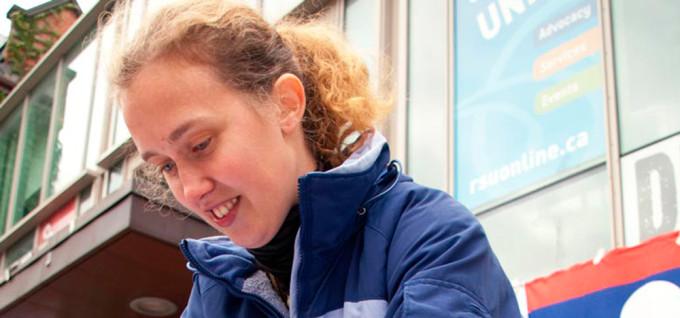By Colleen Marasigan
After being denied an FM license, Radio Ryerson is now looking to find a new home on the AM airwaves.
In October 2011, 85 per cent of students who voted said yes to a redistribution of $10.35 from their tuition to help fund and support a new radio station. Despite an attempt to reclaim the 88.1 FM frequency, which included what Ryerson President Sheldon Levy called “a huge amount of work,” Radio Ryerson lost the bid.
Meanwhile, on the second floor of the Student Campus Centre (SCC), the office of the former CKLN, which was stripped of its license in Aug. 2011 by the CRTC, is now undergoing a complete renovation.
The space is now also being repurposed for student campus groups.
Much of the space is being converted into a common area, and a smaller, separate chunk will be used as office space for Radio Ryerson.
This space will help with the group’s next application and host media workshops, according to Jacky Tuinstra Harrison, who managed Radio Ryerson’s application.
“Right now there’s no working space,” Harrison said. “We usually just meet in a common area that we can find at [the SCC] or elsewhere on campus.”
Harrison added that though the group has access to approximately $240,000 obtained through the referendum (of which almost 25 per cent was spent on the FM application), the cost of the renovations would be paid for by the Palin Foundation.
Rodney Diverlus, president of the Ryeron Students’ Union (RSU), said that although the Palin Foundation would cover the costs of the common space, Radio Ryerson was expected to cover the costs associated with its office.
“Radio Ryerson is covering the cost of their [space] and the student centre is covering the cost of the bookable room,” Diverlus said.
“They have access to funds.” Harrison said adding an office space with equipment to produce content is important to the CRTC application process, which requires a preemptive inspection of site location by Industry Canada.
Currently the group’s volunteers are at work producing content – such as documentaries, artist interviews and event listings – but Harrison said it will not be made available until the launch of an online portal. The group will feature the content on its website.
Though the group was unsuccessful in its first attempt to nab a frequency, Levy says the students have his full support.
“I think the university deserves it but more importantly the students deserve it,” Levy said. “And if they needed help, needed some money, needed support, I would be 100 per cent behind them.” Though there is not a hard and fast deadline, Radio Ryerson hopes to apply to Industry Canada for approval sometime this winter.
With files from the news team










Leave a Reply